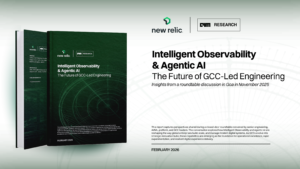In recent years, the Information Technology (IT) industry has witnessed unparalleled growth, with generative artificial intelligence (GenAI) emerging as a pivotal force behind this evolution. GenAI, characterized by its ability to generate innovative solutions, automate procedures, and enhance productivity, stands at the forefront of this technological renaissance. However, the integration of GenAI into the IT landscape is not without its challenges, particularly concerning data security and the potential implications for the workforce.
Navigating Data Security Challenges in the GenAI Era
In the fast-evolving landscape of Information Technology (IT), the integration of Generative Artificial Intelligence (GenAI) presents both unparalleled opportunities and formidable challenges. As organizations embrace GenAI to drive innovation and streamline operations, navigating the intricate terrain of data security emerges as a critical imperative.
Data Security Challenges: The integration of GenAI into IT operations inevitably leads to a significant uptick in data volume, encompassing a wide array of sensitive information ranging from corporate data to customer records and intellectual property. While this influx of data holds tremendous promise for enhancing services and fostering technological breakthroughs, it simultaneously raises red flags concerning data security. GenAI systems, heavily reliant on data for learning and insight generation, become prime targets for cyber-attacks. To mitigate these risks, stringent data protection measures such as robust encryption, secure storage protocols, and multifactor authentication are imperative.
Ethical Data Handling: The integration of Generative AI into IT brings to the fore the need for ethical data handling, especially with the use of Language Learning Models (LLMs). The study “The Ethics of Interaction: Mitigating Security Threats in LLMs” by Ashutosh Kumar et al. addresses this by examining the ethical challenges posed by security vulnerabilities in LLMs. Highlighting threats such as prompt injection, jailbreaking, and the exposure of Personal Identifiable Information (PII), the paper underscores the significant ethical implications for society and individual privacy.
Kumar and colleagues propose the creation of an evaluative tool tailored for LLMs, aiming to guide developers in enhancing security and assessing the ethical aspects of LLM outputs. This tool would compare LLM responses to human ethical standards, helping to ensure that AI behaviors align with societal norms.
The ethical considerations in the face of security threats emphasizes the importance of developing technically effective and ethically responsible defenses for LLMs. This approach is critical for maintaining trust in AI systems, protecting privacy, and preventing harm, serving as a guide for ethical data handling in the IT industry’s ongoing GenAI revolution.
Data Privacy Concerns: The utilization of Large Language Models (LLMs) in AI introduces additional complexities. These models, trained on vast datasets, may inadvertently expose sensitive information, giving rise to significant privacy concerns. Furthermore, the inherent biases within training data and susceptibility to adversarial attacks pose substantial threats to data integrity and system reliability.
The use of large language models (LLMs) in GenAI presents unique challenges:
Data Privacy: The risk of exposing sensitive information used in training these models.
Model Bias and Fairness: The potential for LLMs to perpetuate biases present in their training data, affecting automated decision-making.
Adversarial Attacks: The susceptibility of LLMs to manipulation aimed at generating misleading or harmful outputs.
Data Leakage: The unintended release of sensitive information through model parameters or outputs.
Strategies for Enhancing LLM Security and Fairness
To effectively counteract the challenges posed by the use of Large Language Models (LLMs), a multi-faceted approach to mitigation is essential:
Bias Mitigation: It’s imperative to continuously evaluate LLMs for potential biases and implement corrective strategies. This could involve using algorithms that are designed to be aware of and adjust for fairness during training, as well as applying post-processing methods to amend outputs that display bias.
Secure Model Deployment: Ensuring the security of LLM deployments is critical. This can be achieved by encrypting the models’ parameters and outputs, utilizing secure protocols for communication, and establishing strict access controls to thwart unauthorized access.
Continuous Monitoring: Maintaining vigilance through constant monitoring of LLMs once they are deployed helps in identifying and responding to security threats and unusual patterns of behavior promptly. Crafting comprehensive incident response strategies is crucial for quickly mitigating any detected security issues.
Adopting these proactive measures for enhancing data security and implementing solid security protocols can significantly reduce the risks associated with employing LLMs. Committing to these strategies ensures the safe, secure, and responsible utilization of these advanced AI tools.
Workforce Implications
The integration of Generative AI (GenAI), including Large Language Models (LLMs) like GPTs, is reshaping the IT workforce, blending challenges with new opportunities. Research by Tyna Eloundou and her team reveals that 80% of the U.S. workforce could see at least 10% of their tasks affected, with 19% potentially experiencing a significant impact on half of their tasks. This shift suggests a broad influence across various wage levels and industries, signaling the profound capabilities of LLMs to streamline processes and enhance task efficiency.
Despite concerns over potential job displacement due to automation, the arrival of GenAI also heralds the creation of new roles and the transformation of existing ones. The demand for IT professionals proficient in developing, implementing, and managing GenAI systems is set to rise, driving innovation and steering the future direction of the IT sector.
Eloundou et al. ‘s analysis positions LLMs as transformative technologies that not only optimize task performance—potentially affecting 15% to 56% of tasks with the integration of LLM-powered software—but also catalyze the development of new job opportunities. As the IT industry navigates these changes, the emphasis is on leveraging the efficiencies brought by GenAI while embracing the innovative opportunities it unfolds for a workforce ready to adapt and thrive in this new technological landscape.
Conclusion
GenAI represents a frontier of immense potential for the IT industry, offering unprecedented opportunities to streamline processes, elevate services, and foster innovation. Yet, the journey towards fully realizing this potential is paved with challenges, notably in data security and workforce dynamics. By addressing these challenges head-on, ensuring ethical data use, and fostering a culture of continuous learning and adaptation, the IT industry can navigate the GenAI revolution with confidence. The future of GenAI in IT is not just about harnessing technology but about shaping an ecosystem that balances innovation with responsibility, security, and human-centric development.
This article is written by a member of the AIM Leaders Council. AIM Leaders Council is an invitation-only forum of senior executives in the Data Science and Analytics industry. To check if you are eligible for a membership, please fill the form here.





